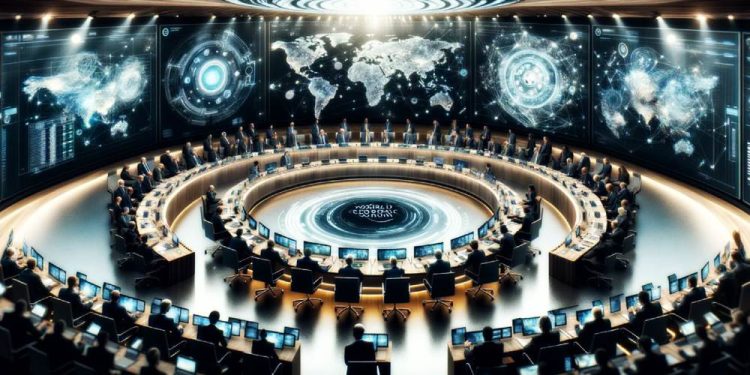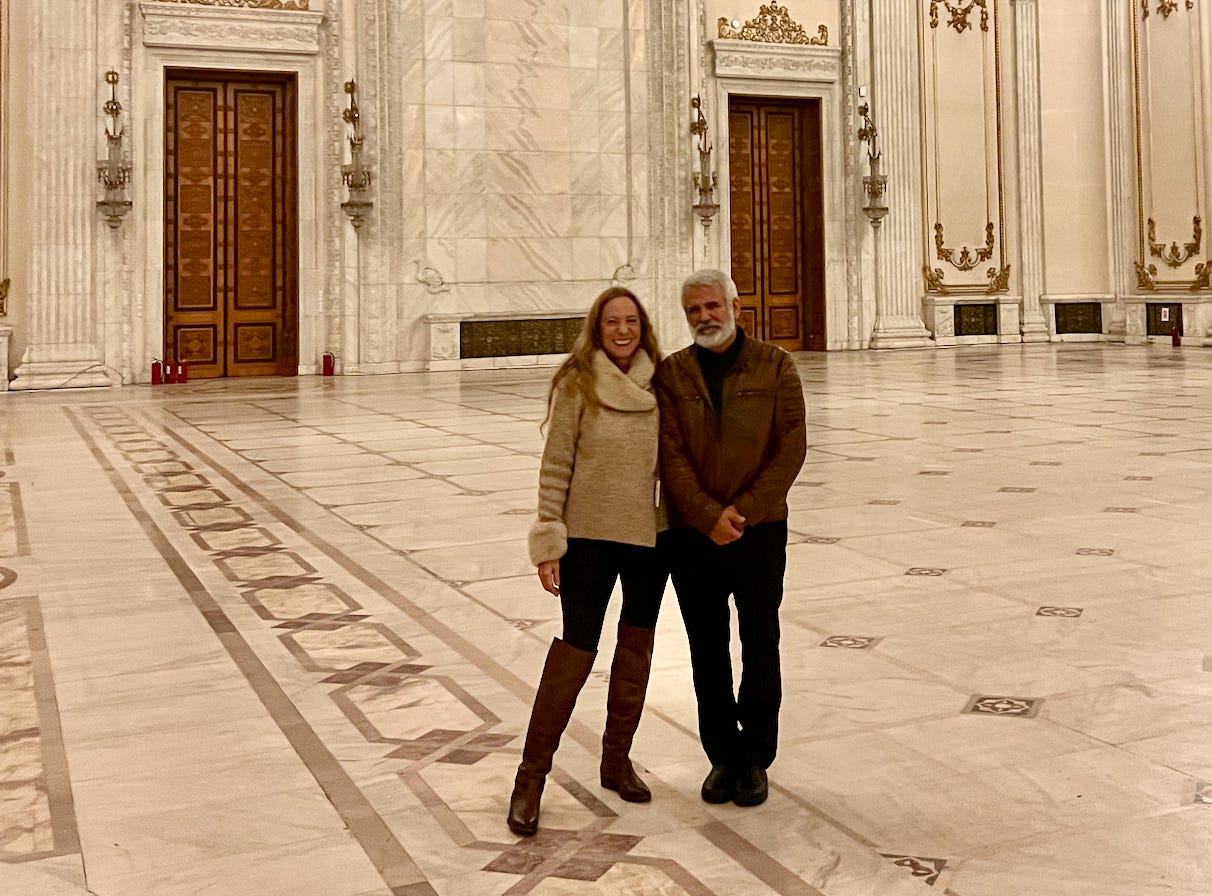(Dr. Robert Malone via Brownstone)—Each nation in the world has its own culture, governance structures, traditions, property, borders, and peoples. We must preserve the diversity and sovereignty of nations and cultures.
By globally synchronizing the public health response across the United Nations member states, new powers were granted to the UN and its organizations at the cost of national sovereignty. These universally applied regulations and multilateral agreements have given birth to an enlarged, globalized administrative state.
Although this power grab has been percolating for many decades, the Covid crisis acted as an accelerant to synergize international agreements that advance the UN as a world government.
The United Nations has morphed into a leviathan. Its various agreements and goals seek to centrally dictate the world’s economy, migration, “reproductive health,” monetary systems, digital IDs, environment, agriculture, wages, climate modifications, one world health, and other related globalist programs.
To be clear, these are the goals of an organization seeking a globalized command economy, not an organization focused on world peace, ending wars, or human rights!
This UN aims to regulate every dimension of our personal and national lives. It is working to reduce and eliminate national sovereignty across the world, and thereby to decrease our diversity, our traditions, our religions and our national identities.
The UN has partnerships and strategic agreements with member nations, as well as other globalist organizations such as the Bill & Melinda Gates Foundation, the World Bank, CEPI, GAVI, the World Trade Organization, the European Union, and the World Economic Forum, known as the WEF.
Here’s an example of how the United Nations operates.
The WEF and the UN signed a strategic agreement and partnership in 2019. Remember that the WEF has a commitment to “stakeholder capitalism,” by which private-partnerships work to control governments.
The WEF developed a plan in 2020 to use the Covid-crisis to reorganize global governance around social issues including climate change – this plan was called the Great Reset.
The WEF is a trade organization representing the world’s largest corporations. It repeatedly exploits disruptive technologies to enhance economic growth opportunities for its corporate members. The WEF is specifically designed to advance the economic power of its global elite members, otherwise known as the “billionaire class.”
As the WEF feeds money into the United Nations through their 2019 strategic agreement, who is managing the conflicts of interests that come with this partnership? Where is the transparency?
The UN has fourteen specialized organizations under its leadership, all involved in global governance, including the World Health Organization or WHO.
None of these organizations have anything to do with the scope of the original UN charter, which was focused on ending wars, promoting world peace, and human rights.
The UN has been quietly building power for years prior to the pandemic through various agreements and treaties. For instance, the “2030 Agenda for Sustainable Development” is a recent example of such an agreement. Agenda 2030 is a treaty for “transforming our world” and was signed into international law in 2015. This treaty has elevated the United Nations to a position of a self-serving global government bureaucracy.
Agenda 2030 has 17 goals and 169 targets, which vary widely in scope and topic, but almost all of these goals directly affect world governance.
Here are just a few examples from the Agenda 2030 treaty. Is this what the United Nations should be concerned with, or are these issues more properly addressed by the policies of sovereign nations?
“We are determined to protect the planet from degradation, including through sustainable consumption and production, sustainably managing its natural resources and taking urgent action on climate change.”
“Achieve full and productive employment and decent work for all women and men.”
“Eliminate discriminatory laws, policies and practices.“
“Adopt policies, especially fiscal, wage and social protection policies, and progressively achieve greater equality.”
“Facilitate orderly, safe, regular and responsible migration and mobility of people.”
“By 2030, provide legal identity for all, including birth registration.”
“This is an Agenda of unprecedented scope and significance. It is accepted by all countries and is applicable to all…”
Agenda 2030 is essentially a totalitarian socialist manifesto. These and many more forceful statements regarding the reduction of national rights are found in this United Nations Treaty.
The UN has signed strategic agreements with the largest organizations, corporations, and world powers to fulfill their utopian vision for the world.
This is a new world order – with unelected officials in control. That means that you and I will be ruled by a non-democratic UN administrative bureaucracy. This is a form of inverse totalitarianism. A world order based on a command economy; one that is at its core both socialist and totalitarian.
Now, these goals and targets may be fine for any single nation to undertake but this is a restructuring of the United Nations beyond its charter.
Early in the pandemic, the UN – through its surrogate the WHO, declared that a global vaccine passport was needed, and provided extensive guidance to member nations to standardize vaccine passports worldwide.
In response, the leaders of the G-20 issued a declaration in 2022 supporting development of a global standard of vaccination for international travel and the establishment of “global digital health networks” to be built on existing digital Covid-19 vaccine passports.
In June 2023, a new initiative between the EU and the WHO for strategic cooperation on global health issues was announced. This agreement seeks to:
“bolster a robust multilateral system with the World Health Organization at its core, powered by a strong European Union.”
After failing to manage the Covid crisis, the WHO now seeks more money and power to control all aspects of our health and lives. They intend to amend the International Health Regulations to govern the “pandemic prevention, preparedness and response” of future outbreaks, which includes public health emergencies of any type. This includes a major role for the WHO in direct governance, as opposed to a guidance-based role.
These changes are predicated on G-20 global adoption of “vaccine passports.” These passports will collect and contain private health data, and will enable surveillance, tracking, and control of individuals and populations worldwide. The passports will include not only Covid-19 vaccine data, but the status of all vaccinations. It will become a world digitized passport – including personal health information that the United Nations has no right to access.
The G20 Joint Declaration regarding vaccine passports and future pandemics is a declaration on how future pandemics will be handled. It states:
“We acknowledge the importance of shared technical standards and verification methods, under the framework of the IHR (2005), to facilitate seamless international travel, interoperability, and recognising digital solutions and non-digital solutions, including proof of vaccinations.
We support continued international dialogue and collaboration on the establishment of trusted global digital health networks as part of the efforts to strengthen, prevention and response to future pandemics, that should capitalise and build on the success of the existing standards and digital COVID-19 certificates.”
The G-20 is also working with the International Monetary Fund (the financial agency of the UN), the World Bank (which has a founding treaty relationship with the UN) and the Bank for International Settlements to formalize use of central bank digital currencies in banking systems. The Bank for International Settlements specifically refers to “the disruption caused by Covid-19” as a justification to create central bank digital currencies.
The pandemic has allowed world leaders to coalesce global administrative power under the guise of public health through the administrative bureaucracy of the UN. Public health has been weaponized to gain control of passports, travel, banking, the environment, and the international economy. This is a gross violation of the individual’s right to privacy, national sovereignty, and the UN charter.
It is just a matter of time before these vaccine passports will be coupled with central bank digital currencies. Then the passports can be used to deny the unvaccinated or other political dessenters access to travel and use of their own money.
- Gold SKYROCKETED during Trump’s first term and is poised to do it again. Find out how Genesis Precious Metals can help you secure your retirement with a proper self-directed IRA backed by physical precious metals.
Once international passports, central bank digital currencies, command economy aspects of the UN’s Agenda 2030, and the WHO amendments to the IHRs are put into place, the groundwork for a new world order will be complete. A global administrative state, whose core power resides with the UN, will become a spiderweb of rules, regulations, agreements, and treaties within which individuals and nations will be trapped like flies.
This new global governance will be virtually unbreakable. From there, it is only a matter of time before national sovereignty becomes obsolete. This is a reality, unless we fight to stop this madness.
For this reason, the power of the United Nations must be exposed and curtailed.
Globalists seeking to advance their agendas are using the model of the European Union, whereby rules and regulations stymie national sovereignty, to build a worldwide system of control.
All must fight this takeover at the local, national and international level. We must use the courts, our legislatures, media, public protests and the power vested in our national and state sovereignty to fight this. If all else fails, individual nations may need to withdraw from the UN’s New World Order in order to remain free.
Let’s work together to keep our personal and national sovereignty safe for future generations. A New World Order is not needed, is not acceptable, and we the people and our sovereign governments should unequivocally reject this globalized takeover.
This speech was written and then delivered at the International Crisis Summit held in The Palace of the Parliament in Romania by Jill Glasspool Malone on Nov 18, 2023.
About the Author
Robert W. Malone is a physician and biochemist. His work focuses on mRNA technology, pharmaceuticals, and drug repurposing research. You can find him at Substack and Gettr






